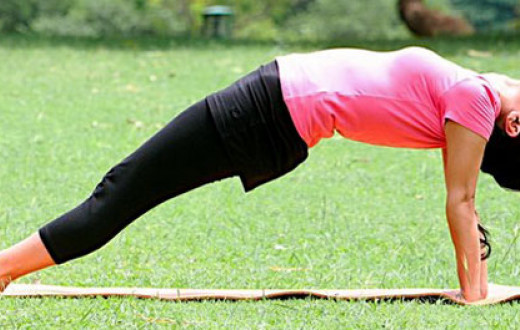While awake, we swerve through different emotions. We shift from one emotion to another without even being aware of it. They oscillate like a pendulum throughout the day and we identify this as mood swings.
From being angry, feeling lonely to feeling sudden joy; from feeling frustrated to suddenly feeling completely lost and lonely, the list goes on.
Although there are many scientific reasons of mood swings like hormonal imbalance and abnormal level of neurotransmitters, the major cause of mood swings is the inability to manage stress in daily life.
A stressed mind tends to go on an uncontrolled emotional ride, which further hampers efficiency and mars our ability to perceive. A mind which is calm and composed experiences the opposite, with increased focus, enhanced confidence and increased ability to handle situations, it remains devoid of any emotional yo-yo.
Three steps to move from mood swings to meditative bliss
Mood swings can be caused by many factors – external and internal. The primary ones are:
- Hormonal imbalances
- Vata (air element in body) imbalance
- Sleeplessness
- Stress at work
- Sedentary lifestyle
- Overuse of gadgets
There are three simple ways which can help you bring the shift in your mind, from being an emotional pendulum to being focused and calm. From small alterations in your lifestyle, diet and addition of yoga and pranayama can do wonders to settle down your wandering mind and fluctuating emotions.
Lifestyle tweaks
Cut your gadget time: It is a good idea to reserve a fixed time for your gadget activities. Start hobbies that don’t require your gadget, like reading a book, painting, cooking, etc. This will minimize your gadget use.
Take work breaks: Sedentary lifestyle is one of the causes of mood swings. It is essential to move your body more often. Take five-minute breaks every two hours at work and take a walk or do some stretches. Try to include more walking and sitting exercises in your routine.
Get sound sleep: Sleep is vital for a calm and balanced mind. To gain sound sleep, be consistent with your bedtime. In addition, eat early and cut down on caffeine intake. Adopt a few Ayurvedic home remedies to sleep better.
Alter your diet
The food we consume has a direct impact on our mind. Certain food items throw you off-balance, while some act as natural mood stabilizers and can aid in controlling mood swings.
Some dietary additions that can control mood swings include:
- Pumpkin
- Bottle gourd
- Ash gourd (Winter melon)
- Red rice
- Musk melon
- Watermelon
- Black jaggery
In addition to these, some Ayurvedic herbs act as natural mood stabilizers too, like Jatamansi, Guducci, Ashwagandha and Brahmi. You can consume them in their medicinal form or as a milk supplement.
Mood swings are also a result of vata imbalance and Ayurveda suggests that vata-pacifying diet, which includes a list of food items to be avoided and food items to be eaten, must be followed for those who have intense mood swings.
Yoga, pranayama, and meditation
Studies show that yoga, pranayama, and meditation calm the mind and reduce stress, which is the main factor in aggravating mood swings. Studies also show that meditation increases the gray matter that is related to emotional regulation.
Yoga poses to control mood swing:
These yoga postures and pranayama techniques will bring balance and equanimity in you:
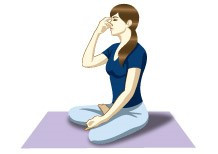
Alternate nostril breathing (Nadi shodhan pranayam)
The simple breathing technique is effective as a natural mood stabilizer. It releases accumulated stress by unblocking the subtle energy channels of the body.
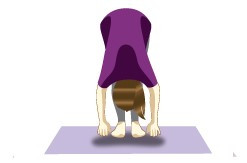
Standing forward bend (Uttanasana)
Holding this pose for a couple of minutes relaxes the mind. It also helps to combat stress and depression.
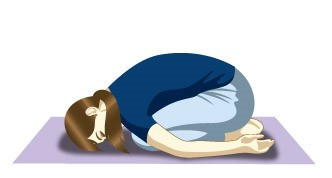
Child's pose (Shishuasana)
This pose can induce a feeling of calmness and help put the mind in a meditative state.
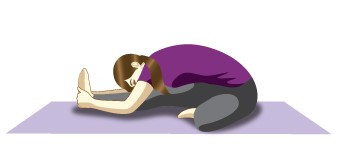
Head to knee forward bend (Janu shirasasana)
This pose helps in calming the mind and relieves mild depression. It also relaxes spine and back muscles and relieves stress.
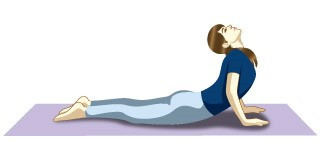
Cobra pose (Bhujhangasan)
The pose expands the chest and reduces stress and fatigue.

Corpse pose (Shavasana)
This pose brings extreme relaxation to min and body.
You can also practice Sudarshan Kriya, a breathing technique that enables the mind to slip into meditation easily. Studies have also linked it with better sleep, a significant reduction in stress, and improved emotional regulation.
Learn the practice in the Happiness Program. Find an upcoming program near you!
Disclaimer: We recommend you to avail Ayurvedic therapies/medicines through a certified doctor's prescription, for best results.
(With inputs from Dr Sunanda K, Ayurveda)





























